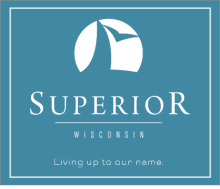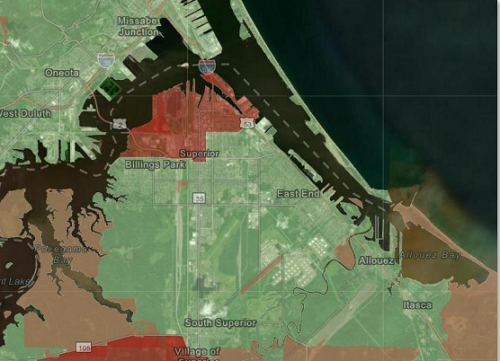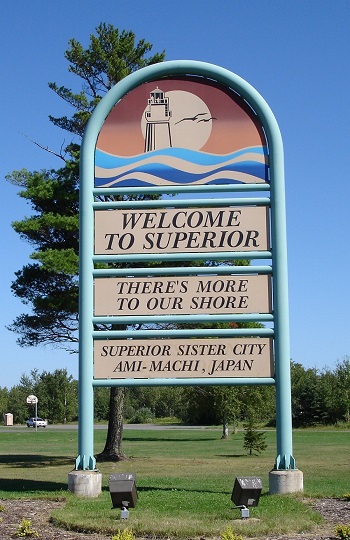
Fast, affordable Internet access for all.

Superior, Wisconsin officials have given the green light to the first pilot area for Superior’s new city-owned fiber network. Dubbed Connect Superior, the open access fiber network aims to deliver affordable gigabit access to every resident, community anchor institution and business in the city of nearly 27,000.
On July 5, the Superior City Council voted 8-1 to approve deployment in the project’s first pilot area: a swath of around 821 homes and businesses lodged between Tower Avenue, Belknap Street, and North 21st streets. The vote lets the city now begin issuing RFPs for network construction and negotiate with potential network tenants.
In 2020 the city passed a resolution declaring fiber essential infrastructure. In 2021, the city council voted overwhelmingly to move forward on a deployment master plan developed for the city by EntryPoint Networks. The initial $2.26 million cost of the pilot will be paid for with the help of $5 million from the city’s $17 million allocation from the American Rescue Plan Act funding.

A citywide deployment, should the city pursue it, is expected to cost somewhere around $31 million. The city remains hopeful that much of the cost can be offset by what it hopes will be a 40 percent take rate among local residents and businesses.
Superior’s new network is being built on the back of decades’ worth of frustration at the regional broadband duopoly, composed largely of cable giant Charter Spectrum and regional telco Lumen (formerly CenturyLink). Like so many regions of the U.S., limited competition has resulted in high prices, spotty coverage, and poor customer service.
A 2019 city survey found that 73 percent of locals stated they would support a municipal network, with another 23 percent of respondents saying they would possibly support the network. Like other cities pursuing municipal networks, interest in such alternatives dramatically sparked during the peak COVID home education and telecommunications booms.

“Residents in our city have been paying too much for mediocre access to the Internet,” Superior Mayor Jim Paine laments at the project’s website. “The unfortunate reality is that the current dominant internet access model in our country is one where network operators build closed systems that are designed to maximize profit and limit access. Alternatively, the Superior Fiber Utility seeks to maximize value and lower costs through competition.”
Ultimately, the city projects the project will not only dramatically boost broadband speeds in the region, but reduce the amount locals pay for broadband access by as much as thirty percent. Officials remain hopeful they can ultimately provide gigabit service for $46 to $55 per month to residents, and somewhere around $75 a month to area businesses.
Superior officials say they were greatly inspired by the success of EPB Fiber in Chattanooga, and the estimated $2.69 billion return on investment the Tennessee city saw in the ten years since the $220 million project’s completion. They were similarly inspired by the success of the open access network in Ammon, Idaho, where locals are able to switch between several ISPs in moments by simply selecting their chosen provider via a city web portal.
“I look at it from the perspective of basic government service,” Superior City Counselor Garner MoffatMoffat tells the Superior Telegram. “We’re here to provide for the common welfare … this is the basics now.”
*This story was updated to correct the year the city passed a resolution declaring fiber essential infrastructure.
